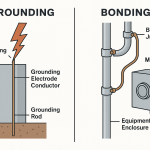
Choosing the best blogging platform affects everything from SEO to monetization. Learn why WordPress.org still leads and discover top alternatives.
Introduction to Selecting the Best Blogging Platform
Starting a blog is thrilling—but pause before you write your first post. Your blogging platform choice shapes your design, SEO success, and ability to make money. In 2025, when millions of blogs compete for attention, selecting the best blogging platform is more than technical—it’s strategic.
Why Blogging Platforms Matter
Your platform affects:
- Design flexibility – create a brand readers remember
- SEO – rank higher in Google searches
- Monetization – add ads, sell products, or join affiliate programs
- Scalability – handle growth from 100 to 100,000+ visitors
Choosing wrong? You might later rebuild everything.
What Is a Blogging Platform?
A blogging platform is software that lets you publish content online. Over the years, they evolved from basic editors to feature-rich tools supporting e-commerce, multimedia, and SEO optimization.
Self-Hosted vs. Hosted Platforms
Self-hosted (like WordPress.org):
- Own your site and content
- Install plugins and themes
- Monetize freely
Hosted (like Wix, Squarespace):
- Easy setup
- Limited control
- Monthly fees and platform rules
WordPress.org: The Best for Serious Bloggers
Nearly half of all websites use WordPress.org—and for good reasons:
✅ Full control over your site
✅ Thousands of plugins for SEO, email marketing, and design
✅ Better SEO performance thanks to technical flexibility
✅ Scalable to handle viral traffic
Control and Ownership
Unlike hosted options, self-hosting means:
- You own your domain and files
- You’re not bound by platform rules
- Your blog can’t disappear if a company shuts down
Plugins and Themes
With 50,000+ plugins and countless themes, WordPress.org turns your site into anything: a blog, store, or portfolio.
Better SEO Performance
- Install advanced SEO plugins like Yoast SEO
- Create custom URLs and metadata
- Improve site speed and structure for better ranking
Hosted platforms often lack these features.
Scalability and Growth
Imagine a post goes viral. WordPress.org + good hosting handles spikes better than most drag-and-drop platforms.
Recommended Hosting Providers
A self-hosted blog needs hosting. Two proven choices:
Bluehost
- Affordable: around $2.95/month (often with free domain)
- Easy WordPress installation
- Reliable support
Great for beginners on a budget.
SiteGround
- Faster site loading
- Strong security
- Premium support
Worth the extra cost if speed matters.
Alternatives to WordPress.org
Some prefer simpler tools. Let’s look at top options.
Wix
Pros:
- Drag-and-drop builder
- Fast launch
Cons:
- Weak SEO tools
- Harder to migrate later
Better for hobby blogs, not business.
Squarespace
Pros:
- Stunning templates
- All-in-one package
Cons:
- Pricier
- Limited customization
Ideal for photographers or creative portfolios.
Other Options: Weebly, Ghost, Shopify
- Weebly: Simple but outdated
- Ghost: Fast, minimalist, but technical
- Shopify: Great for e-commerce, less for blogging
Each fits a niche; not ideal for classic blogging.
Avoid Free Platforms
Free platforms like Blogger.com or Medium limit:
- Custom branding
- Monetization options
- Control over your content
They’re tempting—but short-lived.
Design Flexibility and Branding
Your design shapes first impressions. WordPress.org offers endless customization, while most hosted platforms limit you to fixed templates.
SEO Considerations
Ranking higher needs:
- Fast loading speed
- Schema markup
- Custom sitemaps
Self-hosted WordPress supports all; many hosted options do not.
Monetization Opportunities
Serious bloggers monetize via:
- Affiliate links
- Ads (like Google AdSense)
- Selling products or courses
On free or hosted platforms, you may face limits or extra fees.
Content Ownership
With self-hosting, you fully own your content and can back it up. Hosted services might change terms or remove your blog.
Platform Costs and Budget
- WordPress.org: hosting + domain ≈ $3–$10/month
- Wix & Squarespace: $12–$40/month
- Free platforms: $0—but hidden costs later
User Experience and Learning Curve
- Hosted: easier at first
- Self-hosted: steeper curve, but endless control
In 2025, beginner tools improved—but WordPress still wins long-term.
Future-Proofing Your Blog
Choose a platform that lets you:
- Add e-commerce
- Scale traffic
- Integrate tools like email marketing
WordPress.org remains best for this flexibility.
Conclusion on Selecting the Best Blogging Platform
Selecting the best blogging platform isn’t about trends—it’s about your goals. WordPress.org remains the top pick for serious bloggers who want growth, freedom, and income. Alternatives exist, but often trade control for simplicity. Invest in your blog’s future today.
Selecting the Best Blogging Platform
Choosing right shapes everything: SEO, design, monetization, and growth. For 2025, WordPress.org still leads for those serious about blogging.
FAQs
Is WordPress.org free?
Yes, but you’ll need paid hosting and a domain.
Can I switch platforms later?
Possible, but you risk losing SEO and formatting.
Is Wix bad for SEO?
It improved, but still lacks advanced features of WordPress.
What’s the cheapest option?
Self-hosted WordPress with budget hosting like Bluehost.
Why avoid free blogging platforms?
Limited branding, control, and monetization.
Which platform is best for beginners?
WordPress.org with a good tutorial—or Wix if you don’t plan to monetize.





